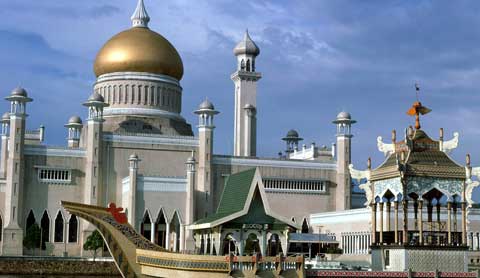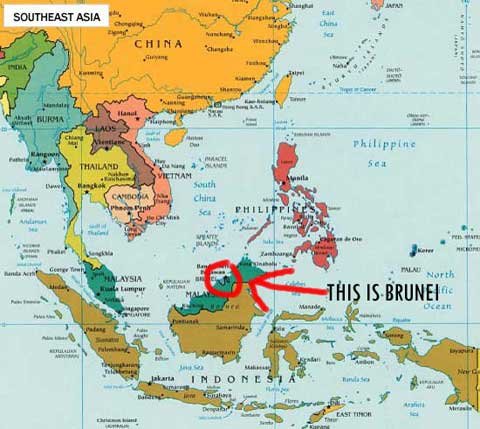Brunei, wealth and oppression
Brunei is a country with impressive wealth but with an obsolete and improper political system of the 21st century, which must modernize and advance in greater social justice.
Brunei has an area of 5,770 km2. It comprises two unrelated territories, largely separated by the Limbang River basin and surrounded by the territory with the name of Sarawak.
Brunei is located in the northern coastal area of the island of Borneo. It has a coastal plain with marshy areas to the west. Another area to the northwest and inland is much more mountainous. The highest peak in the country is Mount Buket Pogon and lies to the east, forming part of the Iranian mountains, located on the border with Malaysia. It has abundant forests, which allow the exploitation of rubber.
Its rivers are short, since almost all are born in the country and flow into the South China Sea. Its most important river is the Belait.
This country has a humid tropical climate, with some marine influence, and with an average temperature of 28º. It rains all year round, but more intensely during the monsoon season from November to March.
Brunei is one of the world's leading exporters of liquid gas, which means a threat to its environment. There are periods of haze and smoke, as a result of the fires, which occur in the dry season of the Indonesian jungles.
It has a population of about 400,000 inhabitants, with a density of 70 inhabitants per km2. It is a multiethnic society. 67% of its population are of Malay origin, 15% Chinese, 6% native and 12% belong to other ethnic groups. His life expectancy is high at 77 years. If the literacy rate is 97% and the average number of children per woman is 1.95. The capital of the country is Bandar Seri Bagawam which has about 90,000 inhabitants.
The female population of Bruneo represents 47% of the total and its labor force represents about 40%. Almost two-thirds of university students are women. A law for married women was enacted in 1999 to improve the rights of non-Muslim women in terms of maintenance, property and domestic violence. The law of the Muslim family has also been amended with regard to the position of women in marriage and divorce.
Brunei citizens married to foreigners or raising children of foreign parents do not transmit nationality to their children, even though they are born in Brunei, which means that a part of the population is not part of the state and does not have the privileges of Other citizens. Among other limitations it emphasizes that they have no possibility to own land.
The majority language is Malay although much English is used because it was former colony of the British Empire.
The official religion of Brunei is Islam, where the Sultan is the head of religion. Other important religions of the country are the Buddhism practiced mainly by the Chinese and the Christianity in its diverse currents, are in small communities.!


.jpg)
.jpg)
.jpg)
.jpg)

Very informative! love people that blog about the world and travel.
Upvoted, keep your blogs comming.
do you travel often? hope you do
again nice post!
My friend, a kind reminder here.
#cn tag is stand for chinese.
However, no chinese was detected in this article.
Please use wisely for your tag,thank you.